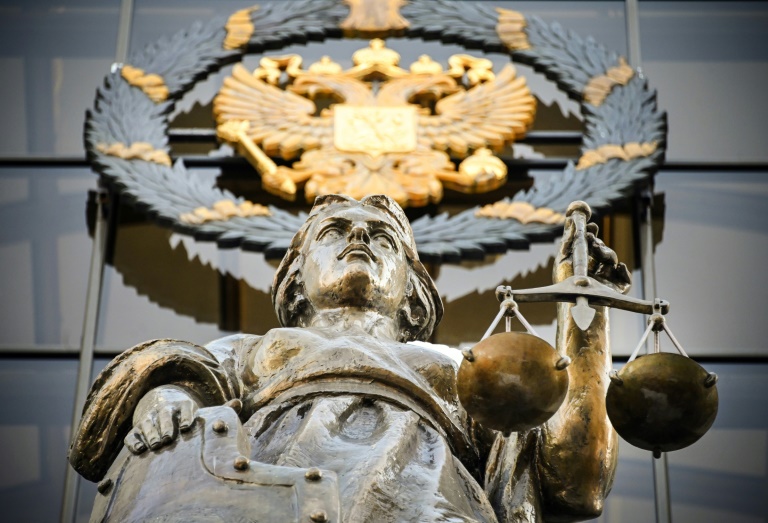
MOSCOW: Russia's Supreme Court will on Thursday consider a request to shut down Memorial, the country's most prominent rights group and a pillar of its civil society.
Founded by Soviet dissidents including Nobel Peace Prize laureate Andrei Sakharov in 1989, Memorial has built up a huge archive of Soviet-era crimes and campaigned tirelessly for human rights in Russia.
Prosecutors have asked the court to dissolve Memorial International, the group's central structure, for allegedly violating Russia's controversial law on "foreign agents".
The move has sparked widespread outrage, with supporters saying the shuttering of Memorial would mark the end of an era in Russia's post-Soviet democratisation.
It comes in a year that has seen an unprecedented crackdown on opponents of President Vladimir Putin, including the jailing of chief Kremlin critic Alexei Navalny and the banning of his organisations.
By taking the once-unimaginable move to close Memorial, the group's founders say Russian authorities would be sending a signal to both the West and domestic opponents.
The message, Memorial founding member Irina Shcherbakova told AFP ahead of the hearing, is: "We are doing to civil society here whatever we want. We will put behind bars whoever we want, we will close down whoever we want."
Thursday's hearing is in one of two cases brought this month against the group and is being heard by the Supreme Court because Memorial International is registered as an international body. The ruling will not be open to appeal in a Russian court.
The other case, against the Memorial Human Rights Centre, began in a Moscow court on Tuesday and will continue later this month.
Both Memorial International and the Human Rights Centre are accused of violating rules under their designations as "foreign agents" -- a legal label that forces individuals or organisations to disclose sources of funding and tag all their publications with a disclaimer.
- Cataloguing Soviet atrocities -
The Human Rights Centre is facing another charge of defending "extremist and terrorist activities" for publishing lists of imprisoned members of banned political or religious movements.
The "foreign agent" label -- laden with Soviet-era connotations of treachery and espionage -- has been used against a wide range of rights groups and independent media in recent years.
Memorial has spent decades cataloguing atrocities committed in the Soviet Union, especially in the notorious network of prison camps, the Gulag.
It has also campaigned for the rights of political prisoners, migrants and other marginalised groups, and highlighted abuses especially in the turbulent North Caucasus region that includes Chechnya.
It is a loose structure of locally registered organisations, but the dissolving of its central structure could have a major impact on operations.
Memorial International maintains the group's extensive archives in Moscow and coordinates dozens of Memorial-linked NGOs in and outside of Russia.
A board member of Memorial International, Oleg Orlov, told AFP the move would "greatly" complicate the work of the NGO by depriving it of a legal basis to pay employees, receive funds or store archives.
UN officials, the Council of Europe, international rights groups and Western governments have all warned against the group being disbanded.
Russia's two surviving Nobel Peace Prize winners -- last Soviet president Mikhail Gorbachev and Novaya Gazeta newspaper editor Dmitry Muratov -- urged prosecutors to withdraw their claims.
The two said in a joint statement that Memorial was aimed not only at preserving the memory of Soviet-era repression, but at "preventing this from happening now and in the future".
The Kremlin has said the case is a matter for the courts, though Putin's spokesman Dmitry Peskov noted that Memorial has "long had issues with observing Russian legislation".